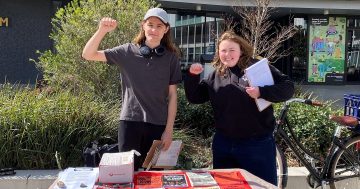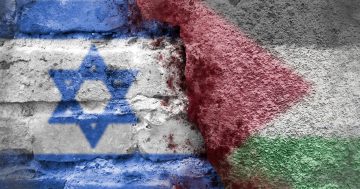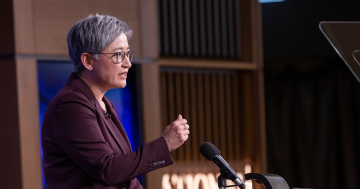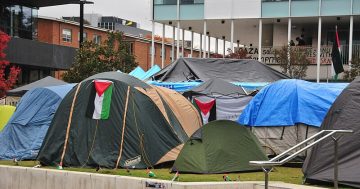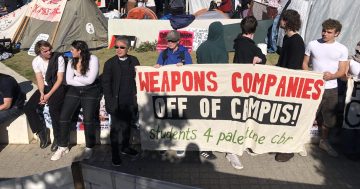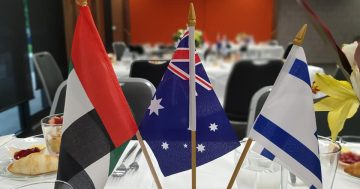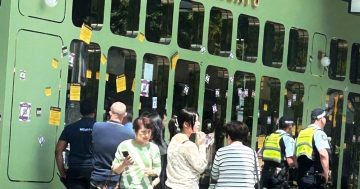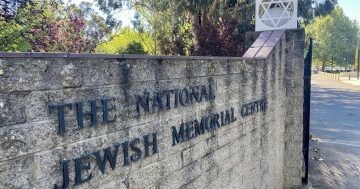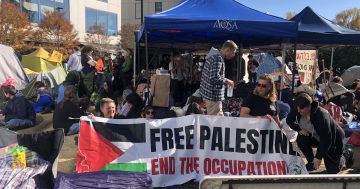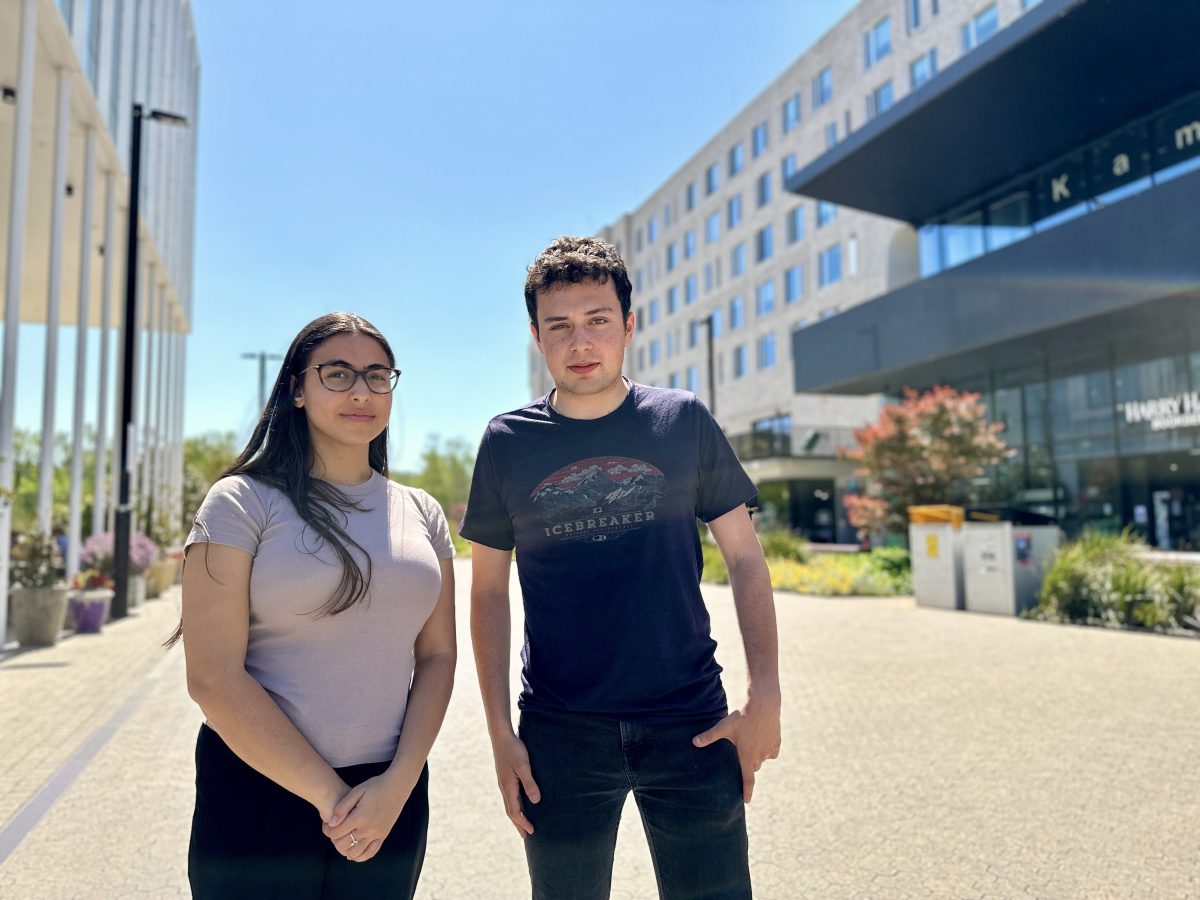
Maya Grynberg and Joe Hadassin from the Australasian Union of Jewish Students ACT. Photo: James Coleman.
Maya Grynberg had finished her first all-day unsupervised shift at work on Saturday, 7 October, when she phoned her parents. She was expecting something along the lines of “congratulations”, but instead got: “Have you heard what’s going on?”.
“It didn’t quite hit me until I got home,” she says. “I don’t think I’ll be forgetting that moment.”
It was the day Hamas terrorists infiltrated Israel by air, land and sea in an unprecedented surprise attack that led to the death of 1400 Israelis, and the taking of more than 212 hostages. Israel responded by attacking Gaza, imposing a complete blockade and bombing civilian buildings in an attempt to flush Hamas out of their underground tunnel network. Hamas claims 8300 Palestinians have been killed.
The ripples of this conflict are being felt across the world, including here in Canberra.
Maya moved from Sydney to the Australian National University (ANU) in 2022 to study health science, and immediately began working her way up the ranks of the Australian Union of Jewish Students (AUJS) on campus. She’s now treasurer and co-president of the ACT branch.
“I went to a Jewish school, and I was raised around the Jewish community my whole life,” she says.
Her mum grew up in Jerusalem, before she met her now husband and the couple moved to Australia. Maya still has plenty of family in Israel, including her 22-year-old brother.
One family, right on the border of the Gaza strip, escaped the attack, but their home was destroyed.
“They’ve moved somewhere to the middle of Israel to live with friends, and they’re pretty shaken up,” Maya says.
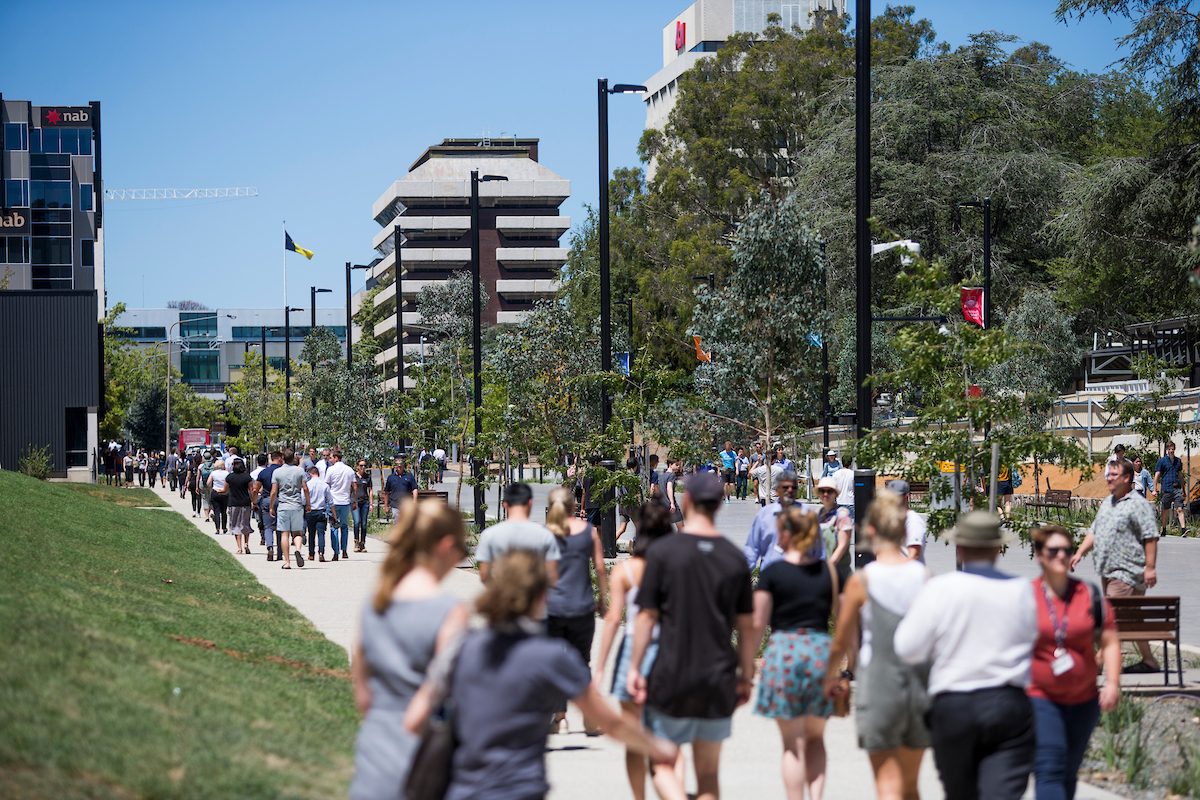
The Australian Union of Jewish Students (AUJS) operates at 15 campuses across Australia and New Zealand, including the ANU. Photo: ANU.
Her brother has also moved, after the risk of rocket strike sent him rushing for the bomb shelter five times a day. He’s now working in a food warehouse, helping to distribute rations.
“He’s on the night shift, so I can talk to him during our day,” Maya says.
“I’m just glad he’s safe, and he’s not too close to any border.”
In the days that followed the initial attack, the Israeli Defence Force (IDF) retaliated by shutting off water and supplies to the Gaza strip in a bid to flush out civilians so they could target the Hamas tunnels beneath with rockets. They’re now embarking on a ground assault.
These attacks prompted pro-Palestine protests around the world, with one held here in Garema Place on Friday, 13 October. Placards called for the two sides to come to a cease-fire or “two-state” solution, while others called for the state of Israel to be disbanded entirely.
On campus, Maya says the first week “everyone was sort of quiet about it” but since then anti-Semitism has bubbled to the surface.
“People have the right to protest, and what they’ve got over there is not working, clearly,” Maya adds.
“But over the past few weeks, it’s been quite insensitive. Anti-Semitism existed before, but every time there’s an issue over there, it definitely flares up again, and especially this time. I want to be proud of the fact I’m Jewish, but I’m scared to say it now.”
Fellow ACT co-president Joe Hadassin says it mostly takes the form of graffiti, but members of the association are also covering up their AUJS badges as a precaution. He says the ANU has been “very helpful”, and provided security guards for their vigils and events.
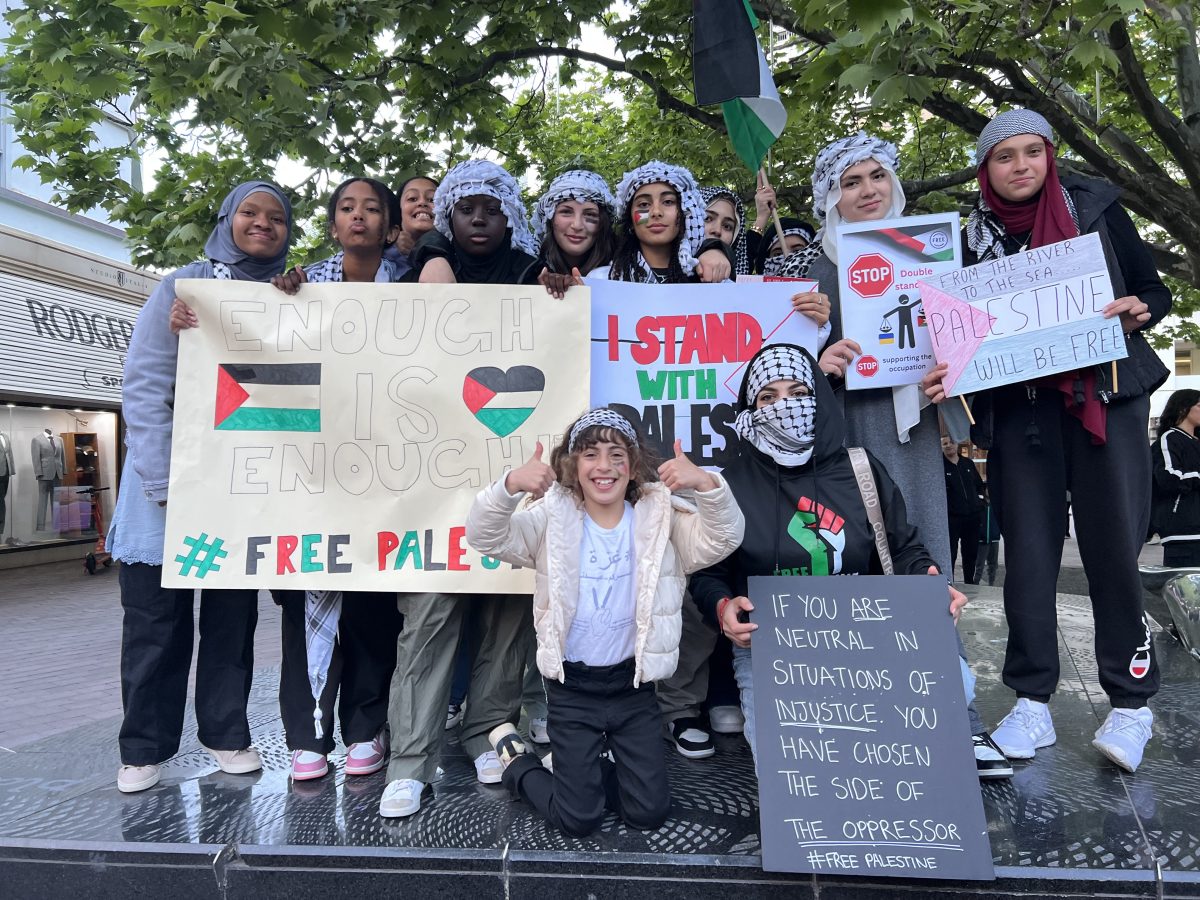
A pro-Palestinian rally was held on 13 October in Garema Place, Canberra. Photo: Palestine Action Group Canberra.
Adeebah Ghannam is a Palestinian student of pharmacy at the University of Canberra (UC), with family in the West Bank, an area occupied by Israeli forces since 1967. She also has other family members and friends in Gaza.
Last Sunday, her family received a voice message from one of them “basically saying she doesn’t know if she’ll get the opportunity to ever talk to us again, and asking us to forgive her if she’s ever wronged us”.
“And my other family friend – my mum is very close to her – her husband and all of his family is in Gaza but they have all passed away,” Adeebah says.
Adeebah says things became “unreal” for her when Israel placed Gaza under siege.
“I felt out of reality. I stopped studying, I wasn’t able to focus, I wasn’t able to do anything. It really took a toll one me.”
Adeebah has joined every one of the now weekly local rallies, which she estimates attract 4000 people of all stripes. Her message is simple: “Just stop the killings”.
She says she hasn’t noticed any direct racism towards either Jews or Palestinians at the rallies, except for anonymous comments on the UC Confessions on Facebook about how “they think we should all die”, and posters plastered around the campus often found ripped in half.
“I think everybody should just get get educated, and see the truth for themselves.”












